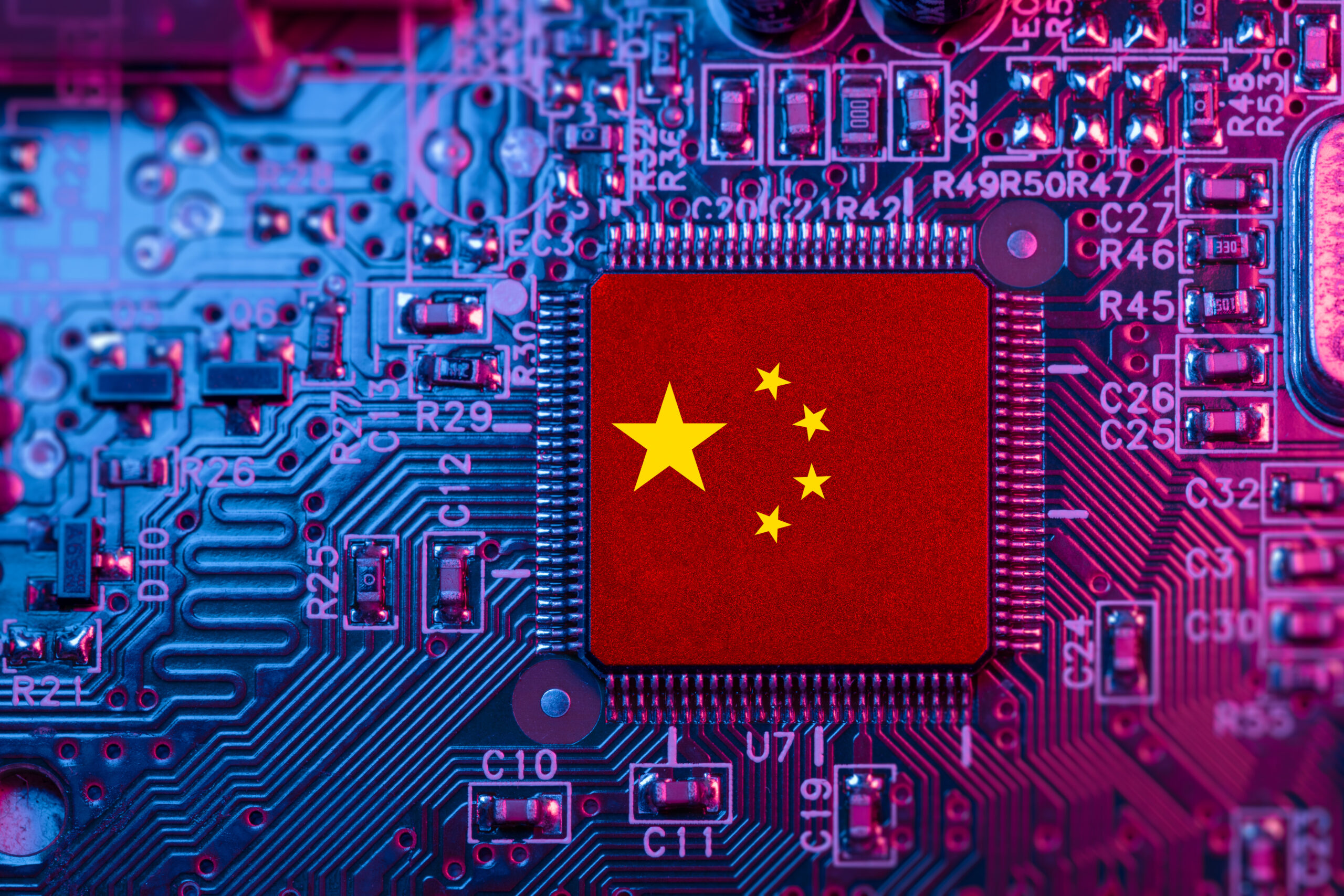In the high-stakes arena of global technology, China has made a bold move that could reshape the semiconductor industry. By tightening export controls on critical minerals essential for chip production, Beijing is leveraging its dominance in the supply chain to counter U.S. restrictions on advanced semiconductors. This strategic maneuver not only impacts the tech sector but also has far-reaching implications for industries ranging from electric vehicles to renewable energy. Delve into this article and discover how China’s actions are intensifying the ongoing trade tensions and forcing nations to reevaluate their technological dependencies. The global race for semiconductor supremacy is entering a new phase, and the repercussions will be felt across economies worldwide.
China’s Control Over Critical Minerals for Semiconductors

Dominance in Minerals Processing
- China has established a formidable position in the global supply chain for critical minerals essential to semiconductor production. The nation processes most graphite, gallium, and germanium, which are key components in advanced technologies. This dominance gives Beijing significant leverage in the ongoing technological competition with the United States and its allies.
Strategic Export Controls
- In response to U.S. efforts to limit China’s access to cutting-edge chip technologies, Beijing has implemented tighter export controls on these crucial minerals. This move serves as a countermeasure, highlighting China’s willingness to use its resource advantage as a geopolitical tool. The restrictions not only impact semiconductor manufacturing but also threaten to disrupt production in related industries such as electric vehicles and renewable energy systems.
Global Supply Chain Implications
- The implementation of these export controls has far-reaching consequences for the global tech industry. As the primary processor of these critical minerals, China’s actions could lead to supply shortages and price volatility in the international market. This situation underscores the interconnectedness of global supply chains and the potential ripple effects of trade tensions between major powers.
Tighter Export Controls on Graphite, Gallium and Germanium Minerals
China’s recent move to tighten export controls on critical minerals has sent shockwaves through the global semiconductor industry. The restrictions on graphite, gallium, and germanium—key components in chip manufacturing—underscore Beijing’s strategic leverage in the ongoing tech rivalry with the United States.
Strategic Significance of Critical Minerals
- These materials play crucial roles in advanced technologies. Graphite is essential for lithium-ion batteries, while gallium and germanium are vital for semiconductors, fiber-optic systems, and solar cells. China’s dominance in processing these minerals gives it significant control over global supply chains.
Impact on Global Markets
- The new export controls are likely to disrupt semiconductor production worldwide. You may see increased prices and potential shortages of electronic devices. Moreover, these restrictions could slow down the adoption of electric vehicles and renewable energy technologies, which rely heavily on these minerals.
Geopolitical Implications
- This move is widely seen as a response to U.S. efforts to limit China’s access to advanced chip technologies. By leveraging its mineral resources, China aims to counter these restrictions and assert its position in the global tech race. The controls also highlight the growing intersection of economic policy, national security, and technological competition between major powers.
Impacts on the Global Semiconductor Supply Chain
Disruption of Critical Material Flows
- China’s tightening of export controls on essential minerals like graphite, gallium, and germanium sends shockwaves through the global semiconductor industry. These materials are crucial components in chip manufacturing, and China’s dominant position in processing them gives it significant leverage. As supply chains face potential disruptions, chipmakers worldwide are scrambling to secure alternative sources and stockpile materials.
Reshaping of Production Strategies
- The uncertainty surrounding access to these critical minerals is forcing semiconductor companies to reevaluate their production strategies. Many are now exploring options to diversify their supply chains, looking to countries like Australia, Canada, and African nations for new sources of raw materials. This shift could lead to increased costs and potential delays in chip production as new partnerships and extraction methods are developed.
Geopolitical Implications and Trade Tensions
- China’s move is likely to exacerbate existing trade tensions with the United States and its allies. As countries vie for control over the semiconductor supply chain, we may see an acceleration of efforts to onshore chip production and develop domestic processing capabilities. This could lead to a more fragmented global semiconductor industry, with regional blocs forming around key players in the tech race.
The “Minerals War” – Geopolitical Tensions Over Resources
The escalating “minerals war” between China and the United States has ushered in a new era of resource-based geopolitical tensions. This conflict underscores the intricate web of economic policies, strategic interests, and global supply chains that define modern international relations.
China’s Mineral Dominance
- China’s stranglehold on critical minerals processing has become a powerful leverage point in its trade disputes with the West. By tightening export controls on graphite, gallium, and germanium, Beijing is flexing its muscles in response to U.S.-led semiconductor restrictions. This move highlights China’s pivotal role in the supply chain for advanced technologies, from chips to renewable energy systems.
Critical Minerals Export Global Ripple Effects
- The repercussions of China’s actions extend far beyond the semiconductor industry. Electric vehicle production and renewable energy deployment are now at risk, potentially slowing the global energy transition. As tensions rise, the interdependence of national economies becomes increasingly apparent, forcing countries to reassess their vulnerabilities and seek alternatives.
The Race for Resource Security
- In response to China’s moves, the U.S. and its allies are scrambling to secure alternative mineral sources. Efforts to develop domestic processing capabilities and forge partnerships with friendly nations are gaining momentum. This shift marks a critical juncture in the high-stakes competition for technological supremacy and control over essential resources, reshaping global trade dynamics for years to come.
Reducing Dependency on China for Critical Minerals
Diversifying Supply Chains
- As tensions escalate, countries are scrambling to reduce their reliance on China for critical minerals. The U.S. and its allies are exploring alternative sources and developing domestic processing capabilities. This shift involves identifying new mineral deposits, investing in extraction technologies, and fostering partnerships with friendly nations.
Boosting Domestic Production
- To counter China’s dominance, many countries are ramping up efforts to increase domestic production of critical minerals. This includes reopening shuttered mines, exploring new deposits, and investing in advanced extraction methods. However, these initiatives face challenges such as environmental concerns and long lead times for new projects.
International Collaboration
- Recognizing the global nature of the challenge, countries are forming strategic alliances to secure critical mineral supplies. The U.S. is strengthening ties with nations like Australia, Canada, and Japan to create resilient supply chains. These partnerships aim to pool resources, share technologies, and coordinate policies to reduce collective vulnerability to Chinese export controls.
Investing in Recycling and Alternatives
- To further mitigate dependence on Chinese minerals, there’s a growing focus on recycling and developing alternative materials. Advanced recycling technologies are being explored to recover critical minerals from electronic waste and industrial byproducts. Simultaneously, researchers are working on developing substitute materials that could reduce reliance on scarce elements controlled by China.
Summing It Up
As you navigate this evolving landscape, it’s crucial to recognize the far-reaching implications of China’s critical mineral export controls. These measures are not merely economic maneuvers but strategic moves in a larger geopolitical chess game. The repercussions will likely extend beyond the semiconductor industry, affecting various sectors reliant on these essential materials. To stay ahead, you must closely monitor developments in this arena, reassess supply chain vulnerabilities, and consider diversifying sources. The global race for technological supremacy and resource control is intensifying, and adaptability will be key to thriving in this new paradigm. As the situation unfolds, remain vigilant and prepared to adjust your strategies accordingly.
 Previous post
AI Evolution Outpacing the Internet: Arm CEO’s Vision of a Rapidly Accelerating Future
Previous post
AI Evolution Outpacing the Internet: Arm CEO’s Vision of a Rapidly Accelerating Future
More Stories
Proofpoint Acquires Hornetsecurity to Strengthen Microsoft 365 Security for SMBs
Proofpoint has announced the acquisition of Hornetsecurity to strengthen cybersecurity for small and medium-sized businesses (SMBs). Hornetsecurity is a leading European provider of AI-driven Microsoft 365 security solutions.
Huawei and Keppel Forge Green Data Future with Solar and Battery Storage Pact
Huawei and Keppel formed a groundbreaking partnership to transform energy use in ASEAN data centers. They signed a Memorandum of Understanding to integrate solar and battery storage solutions.
Kakao Plans Advanced AI-Ready Data Center in Gyeonggi to Boost Service Resilience
The company will build an advanced AI-ready data center in Namyangju, Gyeonggi Province. Notably, this ambitious project is set for completion by 2028. It responds to key lessons from the October 2022 service disruption.
Qwen3: Alibaba’s Open-Source AI Breakthrough Redefining Global Innovation
Alibaba’s Qwen3 emerges as a groundbreaking force, poised to redefine the paradigms of global innovation. As you delve into this open-source marvel, you will discover how Qwen3 is not just another AI model but a sophisticated suite of eight advanced architectures, including the revolutionary Mixture-of-Experts (MoE).
Amazon’s ‘Get Book’ Button Breaks Apple’s Grip on iOS Kindle Purchases
Amazon has introduced a “Get Book” button in its iOS Kindle app, marking a pivotal moment in the ongoing battle over digital purchase control.
Gamuda Powers Malaysia’s Digital Leap with Google’s Data Center Deal
Google has awarded Gamuda Berhad a significant contract to develop a hyperscale data center in Malaysia. This collaboration highlights Google’s investment strategy to strengthen cloud infrastructure and AI capabilities in Southeast Asia.

